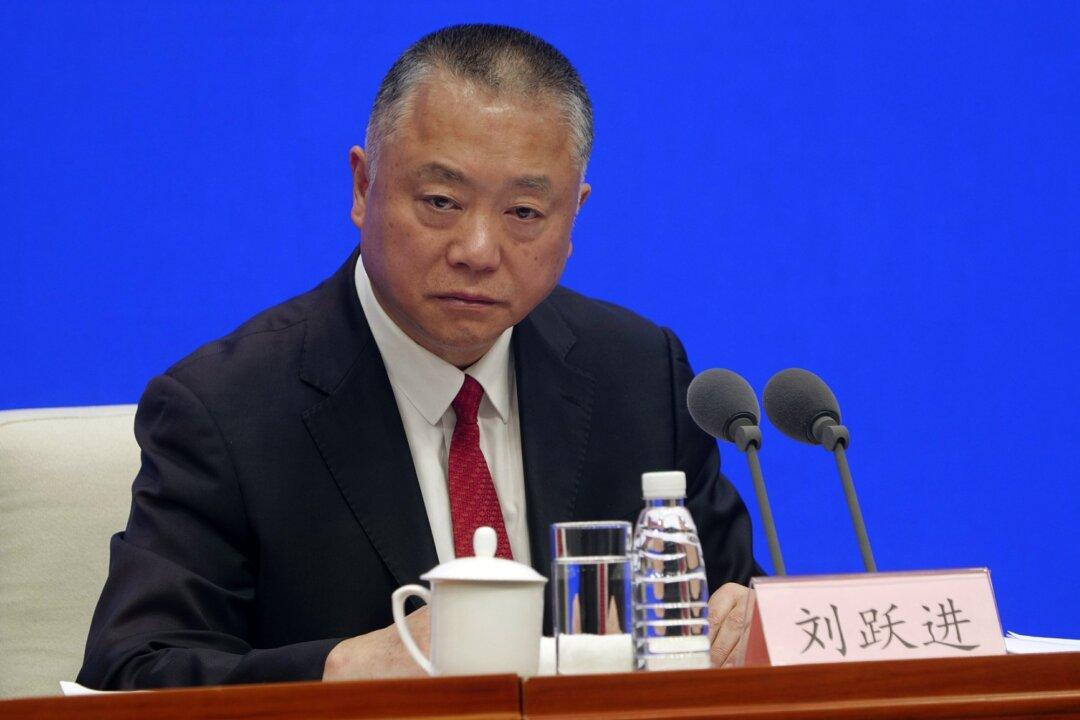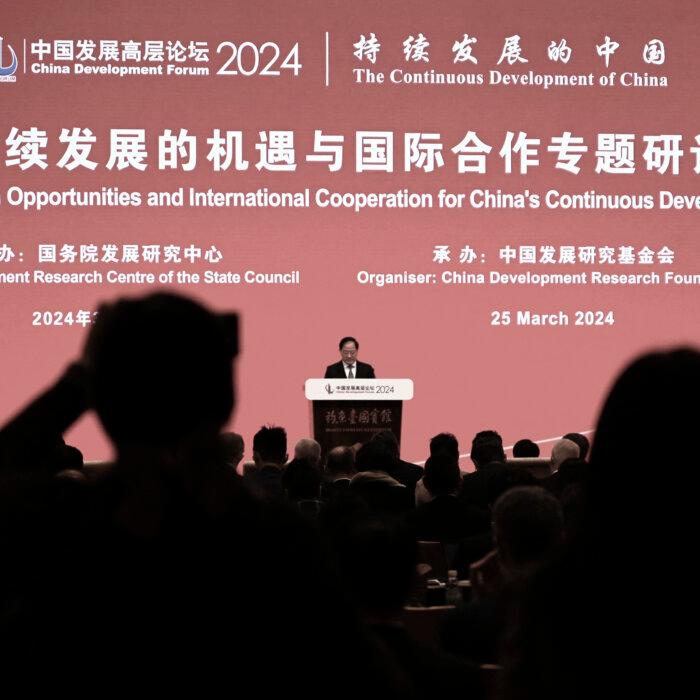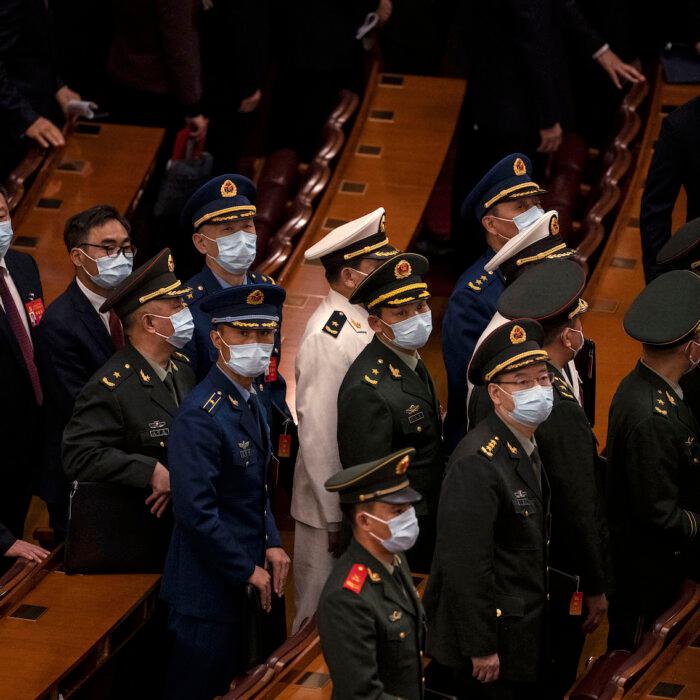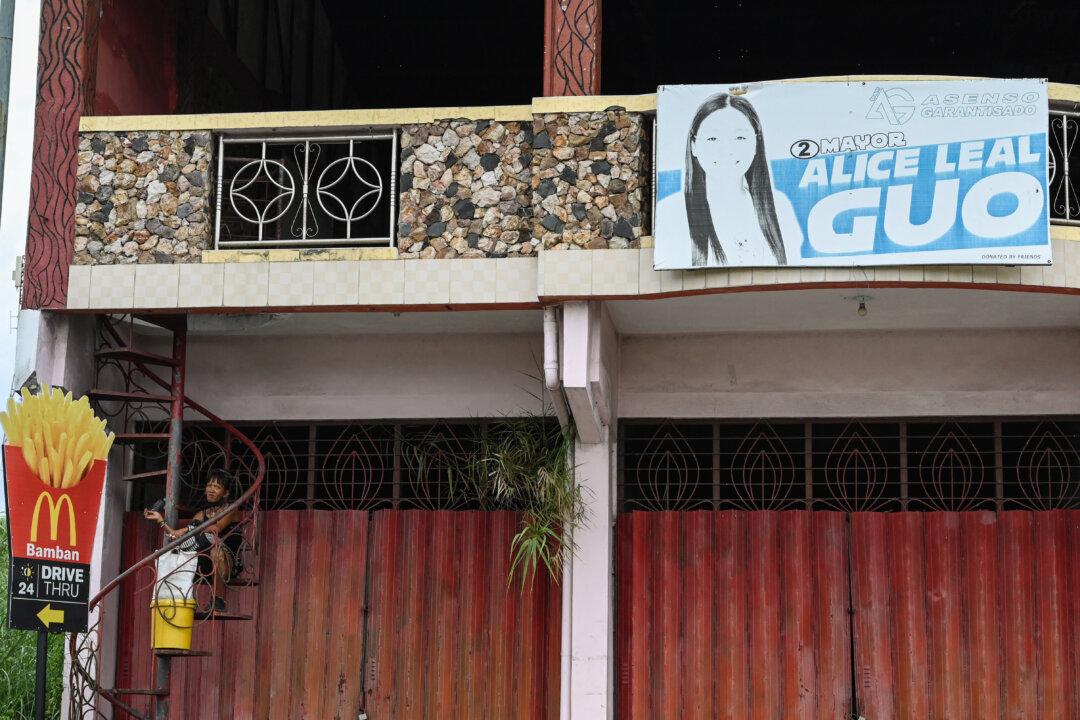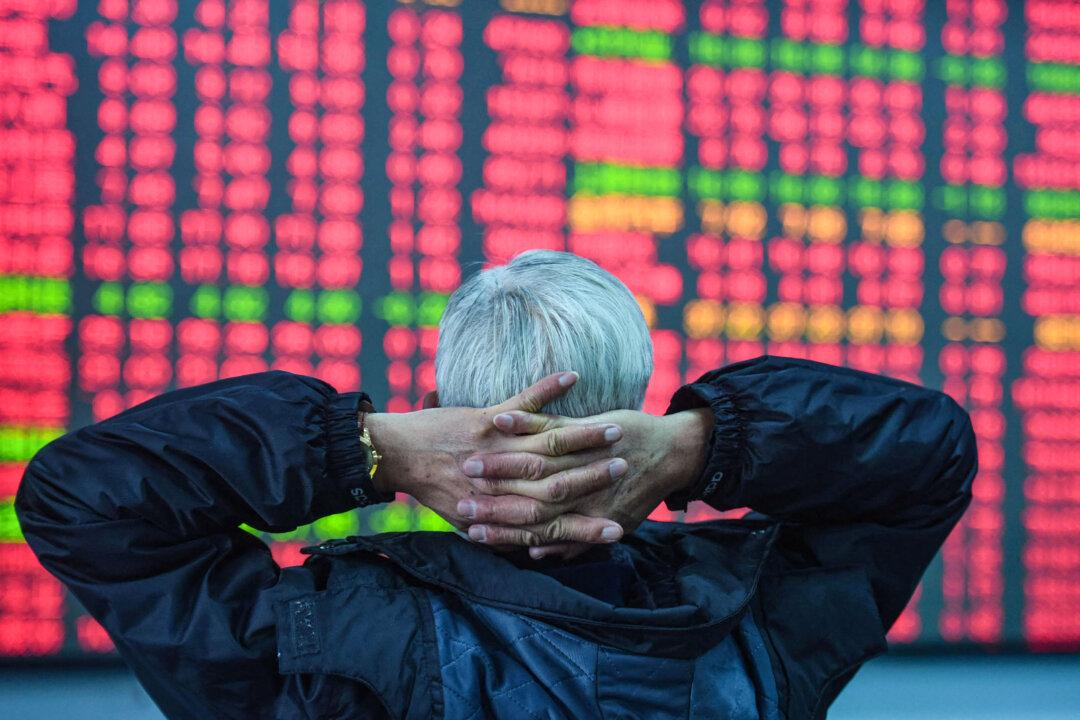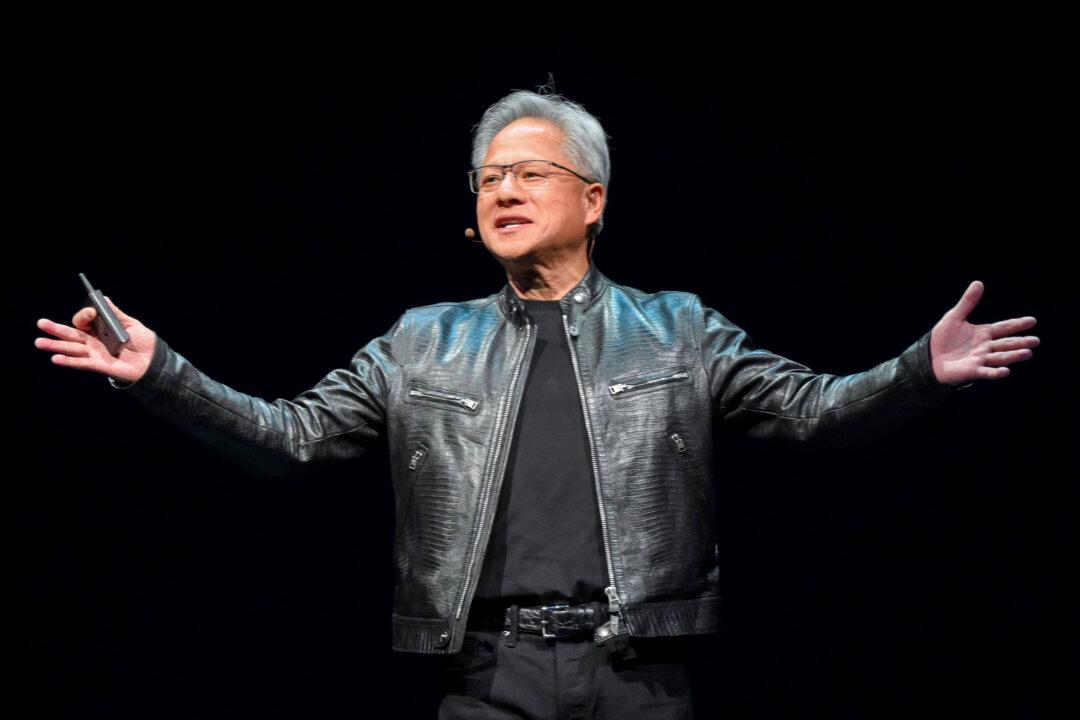The former Counterterrorism Commissioner, once hailed as a “hero” for cracking the Mekong River case while the director of the Anti-Narcotics Bureau of China’s Ministry of Public Security, is now being investigated by the country’s top disciplinary body for corruption.
Early Years
Mr. Liu was born in January 1959 in Guilin, Guangxi Province. His name “Yuejin” actually means “Great Leap Forward” because he was born during the fanatical “Great Leap Forward” movement that began in 1957 and ended in 1960.He graduated from high school at the age of 14 and joined the Chinese Communist Party (CCP) at the age of 18.
In 1979, at 20, Mr. Liu was admitted to the Southwestern Institute of Politics and Law (now Southwestern University of Politics and Law), where he became the first batch of students to specialize in criminal investigation in this school. Before attending college, he worked as an agricultural team leader in rural Guilin and was later recruited and recommended to work as a reporter and editor for a radio station in Guangxi Province.
After graduating from college, Mr. Liu landed his first public security job in Tianjin, where he gradually climbed the career ladder from head of the Youth League Committee of the Tianjin Public Security Bureau to deputy director of the Tianjin Public Security Bureau and director of the Criminal Investigation Bureau.
During his time in Tianjin, Mr. Liu was credited with solving the “White Palace Restaurant” murder case, a major criminal case known throughout the country. However, Song Pingshun, then head of the Tianjin Public Security Bureau and later disgraced, was the overlord of the local public security system, and Mr. Liu, as an outsider, did not receive the promotion he deserved after his meritorious contribution.
Career Path at the Ministry of Public Security
After that, Mr. Liu served as deputy director of the Armed Police Academy, deputy chief of the Party Committee, deputy director of the Ministry of Public Security’s Narcotics Control Bureau, and director of the Ministry of Public Security’s Narcotics Control Bureau.In 2006, during his tenure as deputy director of the Narcotics Control Bureau, Mr. Liu cracked ten major drug cases, including two transnational drug smuggling and trafficking cases in cooperation with the Philippines.
In 2010, then-Minister of Public Security Meng Jianzhu promoted Mr. Liu to Director of the Narcotics Control Bureau, a position he held for four years.
He experienced the highlight of his career during his tenure by cracking the major Mekong River case.
On Oct. 5, 2011, 13 crew members of two Chinese cargo ships were brutally murdered on the Mekong River in Burma (also known as Myanmar). A large quantity of methamphetamine pills was placed on the ships, framing them for drug trafficking, and Thai soldiers shot them. This tragedy, known as the “Mekong River Massacre of Oct. 5,” shocked the world.

Mr. Meng appointed Mr. Liu as the head of the special task force responsible for investigations and arrest operations in Laos, Burma, and Thailand.
Mr. Liu stayed in the border province of Yunnan for months. He visited the crime scenes multiple times and coordinated with Laos, Burma, and Thailand numerous times. The fingerprint and DNA evidence first refuted the Thai military’s claim that the 13 crew members were drug traffickers.
Sai Naw Kham, the leader of a Burma drug trafficking gang, was identified as the prime suspect. Mr. Kham was extremely cautious in his actions and rarely appeared in public. He was the leader of a 30-person armed militia in a Burma township, with good relations with the government. He believed that the large casinos opened by the Chinese in Laos were taking away his business, so he ordered his men to rob the Chinese ships. However, he had not killed anyone in previous crimes.
The Chinese side used their informants in Laos and other countries to locate Mr. Kham’s hiding place. Mr. Kham escaped capture several times during raids, but his close associates were arrested first.
In April 2012, Mr. Kham and two accomplices were captured by police waiting on the Laos side of the Mekong River as they came ashore. Mr. Liu went to Laos to negotiate, and Laos agreed to hand over the criminals to China. In November, Mr. Kham and three others were sentenced to death and were executed by lethal injection in Kunming, Yunnan Province, on March 1, 2013.
However, the nine Thai soldiers who colluded with Mr. Kham and shot the Chinese crew members were not prosecuted or pursued by the Chinese authorities. Mr. Liu had previously stated during his time in Southeast Asia that these nine Thai soldiers should be prosecuted.
For the CCP, this international arrest and extradition of foreigners for trial in China was a huge victory, boosting patriotism among Chinese nationalists. In 2016, China produced a movie called “Operation Mekong,” and Mr. Liu served as the chief consultant. The film became a box office hit upon its release, successfully becoming one of the CCP’s “propaganda films” to glorify its police force.
What the general public did not know is that in the operation to capture Mr. Kham abroad, besides the Laotian police, the Chinese police mainly mobilized local armed forces of the Burmese government, such as the Shan State Army led by Yawd Serk, the Wa State Army led by Bao Youxiang, and other factional armed groups, as well as underworld forces like casinos, to annihilate Mr. Kham’s group.
The CCP portrayed Mr. Kham as a major drug lord, but he was actually just a small armed leader. He was the leader of a township militia in Burma, essentially an armed local security force, a common occurrence in Burma’s ethnic regions.
After Mr. Kham’s armed group was wiped out, Zhao Wei, Mr. Kham’s rival and a Chinese national, became the big winner. His Kings Romans Casino business continued to grow, and Mr. Zhao was dubbed the “Godfather of the Golden Triangle.” He had provided information about Mr. Kham to Mr. Liu’s task force, becoming an important clue in solving the case.
Mr. Zhao was touted by the CCP as a famous overseas Chinese, appearing on the “China Talks” program in the spring of 2011 as a successful figure in the development of the Golden Triangle. However, the international community identified him as a criminal. In 2018, the U.S. Treasury Department accused Mr. Zhao of involvement in drug trafficking, human trafficking, money laundering, bribery, and other illegal activities and placed him on a blacklist of transnational criminal organizations.
Paul Chambers, director of research at the Institute of Southeast Asian Affairs at Chiang Mai University in Thailand and author of the book “Cashing In Across the Golden Triangle,” said that for China, the arrest of Mr. Kham was a substantial victory.
Human Rights Abuses in Xinjiang
In December 2015, Mr. Liu became the Counterterrorism Commissioner, a position unprecedentedly tailored to him.The Taliban and other terrorist organizations learned from the CCP’s past experience of growing opium for money while in Yan'an. Afghanistan became the world’s largest opium grower and drug producer. Urumqi in Xinjiang has become a transit point for Afghan drugs, which then enter the markets of Guangzhou, Shanghai, Hong Kong, Beijing, and other major cities.
Before his counterterrorism czar appointment, Mr. Liu’s counterdrug efforts also extended to Xinjiang, Pakistan, and Afghanistan.
The CCP was very worried that drug criminals and separatist terrorists might join hands in the northwestern region of Xinjiang. Mr. Liu was thus given the official title of counterterrorism czar to coordinate counterdrug and counterterrorism affairs.
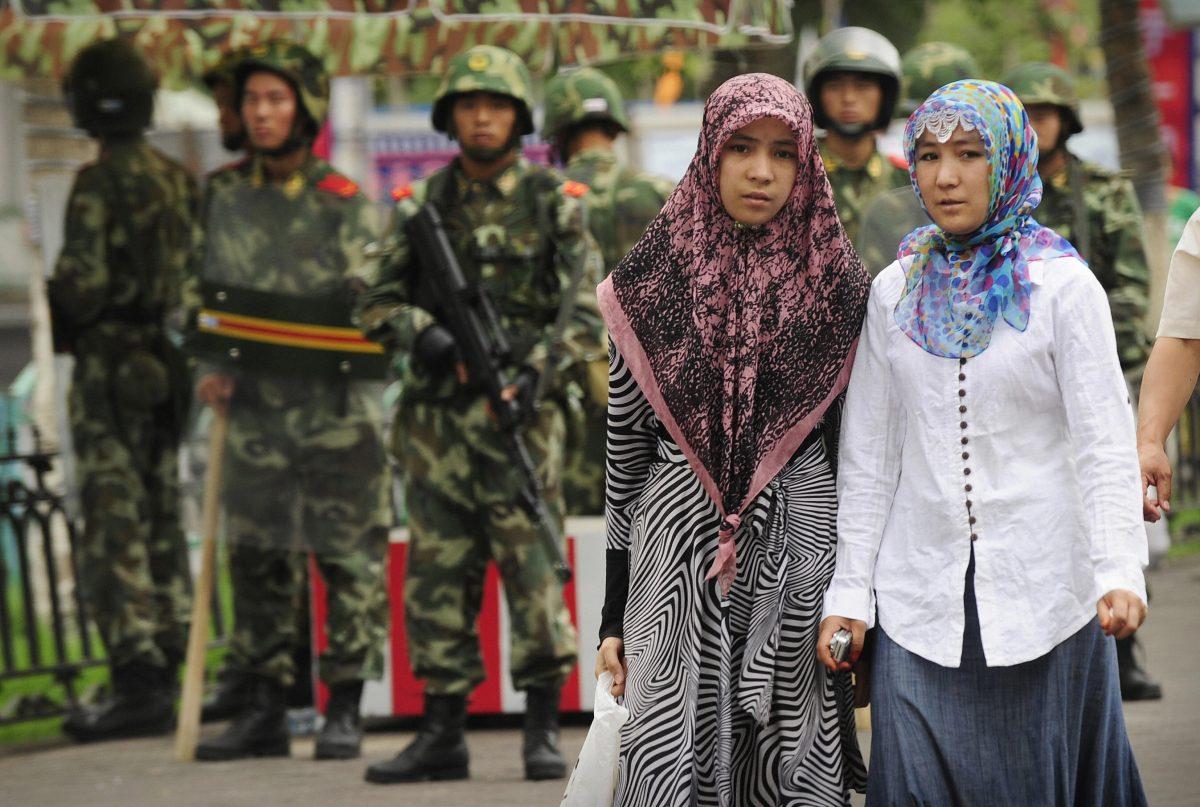
None of the CCP’s Enablers Can Escape Their Doomed Fate
Gao Guangjun, a New York-based lawyer and former lecturer at China Public Security University, was Mr. Liu’s university classmate.He recalled that during their college years, everyone thought Mr. Liu was a good and diligent student and a nice guy who liked to help other classmates.
However, Mr. Gao disagrees with Mr. Liu’s work in Xinjiang.
According to Mr. Gao, Mr. Liu traveled frequently to Xinjiang during his tenure, and he is responsible for the imprisonment of Xinjiang people solely because of their religious beliefs.
Mr. Gao revealed that Mr. Liu had reported directly to Xi on everything he had done regarding the so-called “counter-terrorism” undertaking in Xinjiang.
“This is a dangerous deed destined to leave behind a notorious reputation,” Mr. Gao said. We don’t know what Mr. Liu was thinking, but if he just wanted to be in line with the party and follow the orders of Xi’s Central Committee, then he is part of the criminal organization of the CCP.”
“In China, most people know about the double personalities of CCP members. In private settings, CCP members are ordinary human beings with feelings of happiness, anger, sorrow and joy. They possess ordinary human beings’ merits and shortcomings. They may be parents, husbands, wives, or friends. But placed above human nature and feelings is the Party nature, which, according to the requirements of the Communist Party, transcends humanity. Thus, humanity becomes relative and changeable, while Party nature becomes absolute, beyond any doubt or challenge.”
According to Mr. Gao, Mr. Liu and his wife have only one son. After studying in the United States, his son liked the United States so much that he did not return to China. He chose to become a U.S. citizen and began working in a very sensitive department of the U.S. government. The Xi authorities have asked the immediate family members of senior cadres to return to China, but Mr. Liu’s son has made it clear that he will not return to China. This could also be a factor that has affected Liu’s career.
Mr. Gao believes that one of the main reasons for Xi’s harsh punishment of Mr. Liu is that Xi intends to clean out all those in the Ministry of Public Security who were not his trusted confidants and to remove the remaining connections and influence of those people, even after they have retired. Another deeper reason is that Xi is preparing to shirk his responsibility for the persecution of the Xinjiang people in the future, which is Xi’s usual practice of blaming others for his own crimes and wrongdoings.
Based on Mr. Gao’s description of Mr. Liu during his youth, Mr. Liu is not a cruel person to begin with. However, he lost his thinking and judgment within the CCP system. His fate is similar to that of former CCP premier Li Keqiang. If Mr. Liu had seen through the true nature of the CCP and found a way to leave the system, he might be living a more dignified life now.
In an avalanche, no snowflake is innocent.
Those who dance with evil and work for the evil organization of the CCP will inevitably end up in a sad and pitiful situation.
Wang Juntao, chairman of the National Committee of the China Democratic Party, was Mr. Li’s personal friend when both were college students at Peking University.
“The CCP has its own gangster rules, so you don’t have a chance to do good things, and you have to do a lot of bad things to be in line with the CCP,” Mr. Wang said. “You must quit the CCP and find another way out for China outside the CCP. Only by taking another path is there any hope for China.”
